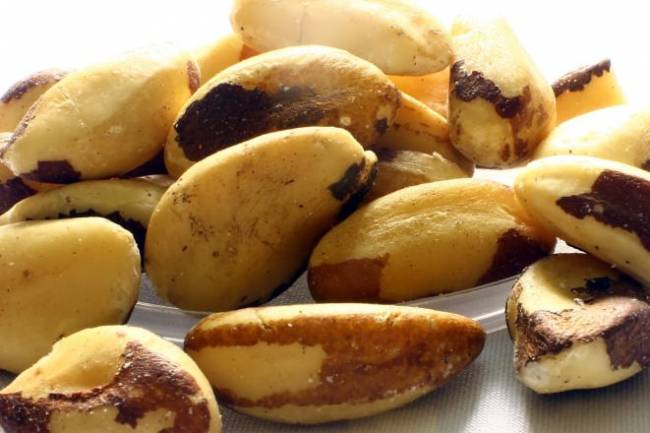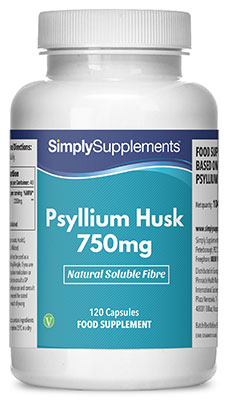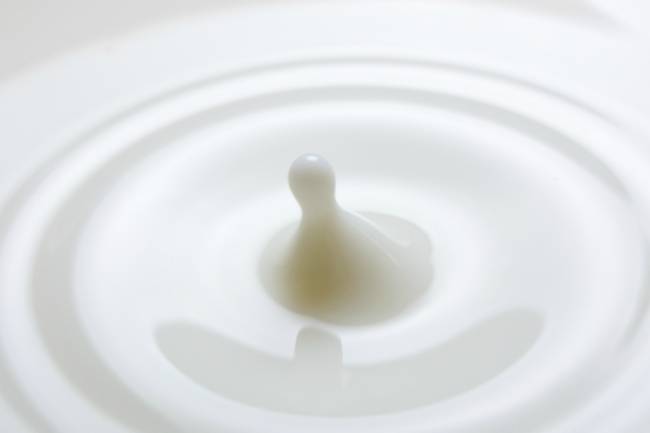Health Benefits of Psyllium Husk

Recent research analysed over 300 studies on the effects of dietary fibre. The reported benefits were astounding, as it was shown that a high-fibre diet is effective for decreasing the risk of heart disease, cancers, and diabetes to name just a few. Unfortunately, we as a nation are renowned for our poor diets and one of the areas where we are most dire is our fibre intake.
A few years back, the Department of Health (DoH) increased the recommended fibre intake from 21g to 30g per day. Alarmingly, we still aren’t meeting the outdated recommendation, let alone the new one, as it is known that 17g for men and 16g for women is the current daily average.
Because of the apparent difficulty in meeting the recommended intake, there has been a surge in the popularity of fibre supplements. One of the most popular and well-researched is psyllium husk, a topic this article is going to explore in detail.
What is Psyllium Husk?
Psyllium husk has a burgeoning reputation as one of the world’s best sources of fibre. Taken from the plant species Plantago ovata, psyllium husk is equally effective in tablets, capsules, powder or in its natural husk form.
Psyllium husk is known as a soluble fibre, because it absorbs water and forms a gel-like substance in the stomach. This property is responsible for its well-regarded health benefits. Let’s now have a look what these scientists have found so you can decide whether it would be a worthwhile addition to your diet.
What Are the Benefits of Psyllium Husk?
Digestive Health
Fibre is best known for its ability to support digestive health and psyllium husk does just that, as it boasts 80% fibre by weight. This means that a dessert spoonful will contribute over a quarter of your daily fibre requirement.
Although all fibre sources are good for digestion, psyllium husk appears to be very special. Scientific studies have consistently shown that this soluble fibre has a gentle laxative effect which is very effective for constipation. Psyllium works by increasing the size and the softness of stools for easy passage.
To complement the ability to ease constipation, psyllium husk has also been known to slow digestion when someone is suffering from diarrhoea, thus helping to alleviate symptoms. On top of this, psyllium husk has the unique ability as a fibre to actually decrease flatulence – something that fibre usually increases despite their health benefits.
For these reasons, psyllium husk has become a very popular supplement for those with digestive issues, especially individuals who suffer from Irritable Bowel Syndrome (IBS).
Cholesterol Control
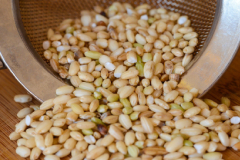 High cholesterol, known to scientists as hypercholesterolemia, is a condition known to affect over half of the adults in the UK. According to Heart UK, reducing our LDL (‘bad’) cholesterol by as little as 5% could reduce thousands of cases of heart disease every year.
High cholesterol, known to scientists as hypercholesterolemia, is a condition known to affect over half of the adults in the UK. According to Heart UK, reducing our LDL (‘bad’) cholesterol by as little as 5% could reduce thousands of cases of heart disease every year.
To complement the benefits to digestive health, psyllium husk has consistently shown in scientific investigations that it has the ability to decrease cholesterol levels in those people with high cholesterol.
A meta-analysis study conducted in 2009 analysed 21 studies with a total of 1030 participants that all looked to assess whether psyllium husk could decrease high cholesterol. This high-quality study found that psyllium husk was effective at reducing total cholesterol and LDL. The authors of this study concluded that these results were significant findings. Furthermore, the benefits were demonstrated regardless of the form in which psyllium husk was taken.
Psyllium husk seems to be of benefit for cholesterol levels as it is known that, to a certain extent, it decreases the absorption of dietary fat and cholesterol. Furthermore, psyllium husk is able to bind to bile acid in the intestines and increase its excretion. The body then has to use cholesterol to create new bile acid to make up for this, subsequently decreasing the cholesterol in the blood.
Blood Sugar Control
Chronically high blood sugar, otherwise known as diabetes, has reached pandemic proportions. At the present time diabetes affects over 400 million people worldwide, which is a twelfth of the adult population. As diabetes can lead to heart disease, kidney damage, nerve issues, blindness and amputations to name a few, managing the condition is of primary importance to national health institutes.
Numerous research studies are in agreement that psyllium husk can reduce blood sugar levels and other markers of diabetes. One study in particular showed that daily provision of psyllium husk for 8 weeks was effective at improving glucose control by almost 20% in a group of diabetic patients.
If you think that is impressive, a subsequent study noted a 29% improvement in blood sugar control in as little as two weeks when taking psyllium husk daily. Both of these positive findings have been reinforced by a meta-analysis study which concluded that the evidence base as a whole is in agreement that psyllium husk improves blood glucose levels and HbA1c. HbA1c is the key measure that health care professionals want to keep under control, as this provides an average blood sugar reading over the past 3 months.
These impressive findings have also been noted without the participants making any changes to their diet or their physical activity levels. This strongly suggests that taking psyllium husk alongside an improved diet and a structured exercise routine would lead to an even greater benefit to diabetes management.
Although the evidence shows that psyllium husk can be effective by itself, scientists are confident that it would provide a synergistic benefit with other nutrients such as chromium and fenugreek, which also have known anti-diabetic properties. As these supplements are highly safe, adverse interactions are not a concern.
Appetite Suppression
As the UK is in the middle of an obesity crisis, the Department of Health is trying to reduce our calorie intake by 200-300 per day. Time will tell whether measures such as the controversial sug ar tax are effective at supporting this aim.
ar tax are effective at supporting this aim.
What is clear is that reducing hunger is an obvious way to reduce calorie intake. Interestingly, the results from numerous scientific investigations have shown that psyllium husk intake before meals can lead to a suppression of appetite which subsequently decreases calorie intake.
There are numerous schools of thought when it comes to the mechanism in which psyllium husk helps to control appetite. Some experts believe that psyllium husk works by absorbing a large amount of water, which helps to increase the bulk in the stomach.
Others believe that it helps to slow the transit of nutrients through the stomach and therefore suppresses hunger for longer. There are also scientists who propose that as psyllium husk helps to ensure steady blood sugar levels this controls appetite. This is another plausible explanation as it is known that erratic blood sugar levels can cause hunger.
Considering that it can suppress appetite whilst decreasing the amount of fat (and carbs) the body absorbs, this indicates that it could potentially be beneficial as part of a weight-loss diet.
How Much Psyllium Husk Should I Take?
The amount of psyllium husk that you should take depends on the reason why you are taking it. The research has shown that 5-10g per day is the amount to aim for when trying to support digestive health, cholesterol and blood sugar levels.
For suppressing hunger levels, around 20g per day is the amount to take. As mentioned earlier, these benefits are experienced regardless of which form of psyllium husk you take.
If you are looking to improve your cholesterol or blood sugar levels, it is advised that psyllium husk is taken alongside meals. For example, you could take 2-5g with each main meal of the day. If you are looking to control hunger levels, you can either take psyllium husk before your meals or alongside your meals. Research studies have shown positive results with both approaches.
If you are taking psyllium husk for the digestive benefits, it can be taken at any time, but it may be more effective when taken with meals. Doses of up to 30g per day have been taken and appear to be well tolerated as long as enough fluids are consumed.
What Are the Side Effects of Psyllium Husk?
Thankfully, psyllium husk is a great addition to the diet as it not only has proven health benefits, but a very respectable safety profile. That being said, there are a couple of points to look out for. 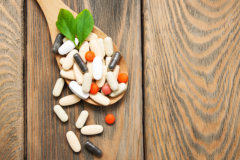
Firstly, psyllium is known as an allergen and can cause both allergic reactions and also worsen symptoms of asthma. This seems to affect around 15% of people and tends to irritate the lungs.
As well as having the ability to decrease the absorption of fat, cholesterol and carbohydrates, it can unfortunately decrease the amount of vitamins and minerals we absorb. Of these essential nutrients, the one that it seems to effect to a significant degree is iron. So if you consistently take psyllium husk, an iron supplement may be a good idea.
Summary
To conclude, psyllium husk is a supplement that has soared in popularity in recent years. Not only does psyllium have proven benefits to the digestive system and for those with IBS, it is known to have a potent effect on cholesterol and blood sugar levels.
As these health issues and a lack of dietary fibre are commonplace, psyllium husk has the potential to be a very useful supplement for a wide range of people. Furthermore, as psyllium has a renowned safety profile in those without an allergy, this supplement should be highly commended.
Sources:
https://academic.oup.com/ajcn/article-abstract/107/3/436/4939351
https://heartuk.org.uk/press/press-kit/key-facts-figures
https://www.ncbi.nlm.nih.gov/pubmed/18985059
https://www.ncbi.nlm.nih.gov/pubmed/10500014
https://www.ncbi.nlm.nih.gov/pubmed/9747644
https://www.ncbi.nlm.nih.gov/pubmed/20959501
https://www.ncbi.nlm.nih.gov/pubmed/20616745
https://www.ncbi.nlm.nih.gov/pubmed/1398229
https://www.ncbi.nlm.nih.gov/pubmed/14963049
https://www.ncbi.nlm.nih.gov/pubmed/7647826

 Matt
Matt 